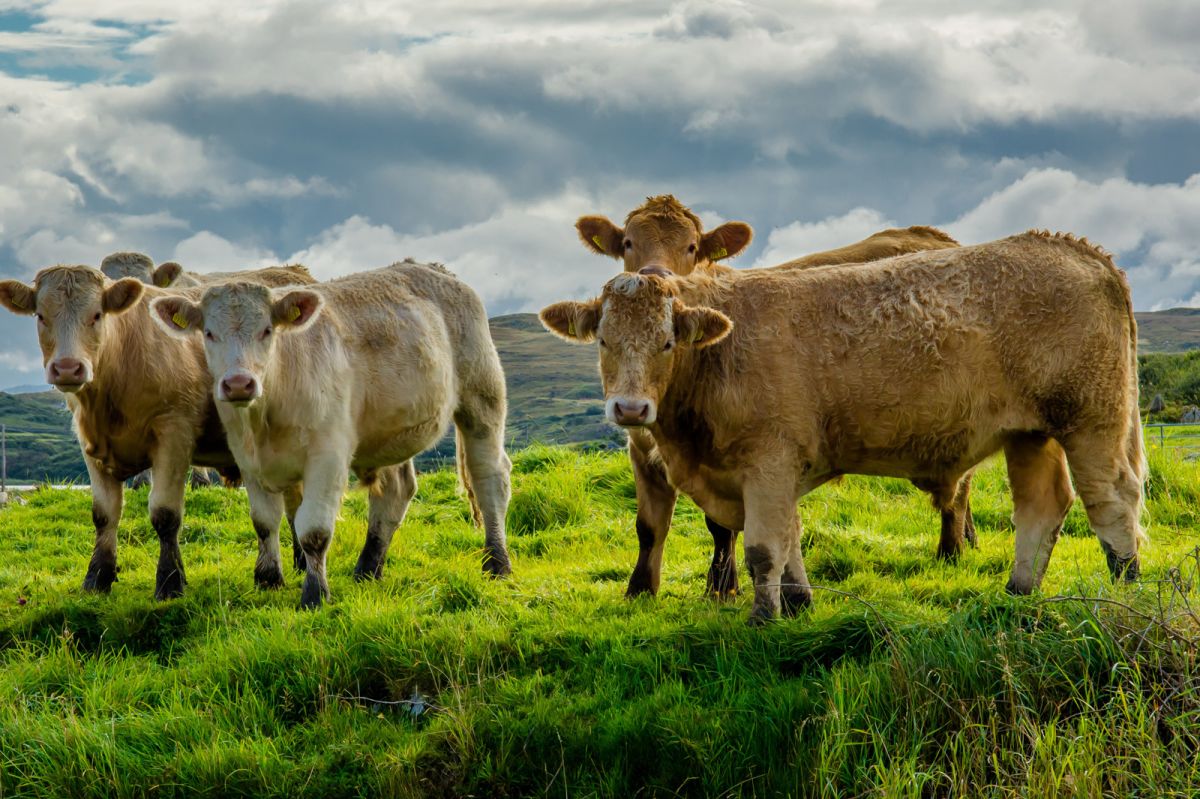Enhancing Environmental Sustainability on Your Beef Farm

Moderated by Kevin Kinsella, the BovINE Network manager, members of the IFA National Livestock Committee and National Environment Committee heard three presentations from environmental experts based in Ireland and France.
Dr. Stuart Green, a remote sensing specialist from Teagasc, demonstrated some techniques currently being applied on Irish farms to measure carbon in a presentation entitled Technologies for measuring carbon on the farm. He explained results and action-based approaches for assessing carbon storage on farms and outlined the techniques involved in measuring carbon in soils and biomass, using soil carbon stock and LIDAR technologies. The Teagasc expert also outlined how satellite technologies like the earth observation satellites linked to GPS smartphones can be used for identifying land use change and its effect on farm carbon. Aspects such as green cover, drainage systems on wet mineral soils, fields managed as paddocks and identification of hedgerow planting and removal, can all be observed and managed using satellite technology. Dr. Green also outlined that work is currently ongoing to directly monitor and measure emissions under a series of Teagasc-led initiatives such as the Terrain-AI project, the Teagasc Signpost Programme, the National Farm Survey and Pasturebase Ireland programmes.
Dr. Anais L’Hote, from the French Livestock Institute, IDELE, made a presentation on carbon crediting, detailing the way in which IDELE and French livestock interbranch organisations have set up a carbon certification scheme, known as CARBON AGRI.
Under this scheme, there are currently two projects up and running involving 1,300 farmers targeting 717,000t CO2 reductions. In some early moves on carbon trading, the project has sold CO2 credits at €38/t, with farmers receiving €30/t net. Dr. L’Hote said the average farmer in the project would receive approximately €13,500 over five years.
The French scientist also outlined details of the EU Life Carbon Farming Project (2021-2027) to the attendees at the meeting. This project involves 700 farmers across six EU member states including Ireland with the objective to reduce their carbon footprint by 15% in six years and build a result-based rewarding mechanism.
John Carty from the Department of Agriculture Food and the Marine made a presentation on environmental schemes and outlined in detail how the new AECM (Agri Environmental Climate Measure) will operate from January 2023. He stated the plan is to begin uploading details on the Department’s website, Agfood.ie, to allow advisers access client data from June 2022, with the first tranche of applications submissions planned for Oct-Nov 2022 and approval and commencement of contracts in Jan 2023.
An active question and answers sessions followed the presentations with debate on many issues including the concept of an EU-wide carbon crediting scheme; how a carbon trading mechanism might work in Ireland; how such a system could be applied at farm level; and how much farmers may get paid.
IFA National Environment Chairman Paul O’Brien indicated that carbon measuring techniques and carbon crediting mechanisms on livestock farms are going to become extremely important procedures in the future and highlighted the significance of getting these techniques right first time round in order to maximise buy in and credibility with farmers on the ground. He emphasised the need for top-class research based on sound science and acknowledged Teagasc as having made a strong start on this with the Signpost Programme.
IFA National Livestock Chairman Brendan Golden stated farmers are always willing participants in practical and worthwhile environmental schemes. He said that earlier agri-environmental schemes, such as REPS, had proved this many years ago. He added that the new AECM scheme, which is more targeted and result based, must also continue to be practical and worthwhile and avoid becoming overly bureaucratic and complex.
Dr. Richard Lynch from Teagasc, project manager of BovINE, explained that BovINE is an EU funded initiative focused on addressing the sustainability of the European beef farming sector across four key areas; socio-economic resilience, animal health and welfare, production efficiency and meat quality, and environmental sustainability. He stated that within the project, farmers, advisors and researchers across nine EU countries are working together to collect on-farm good practices and research innovations to meet the challenges faced by all in the beef sector, which can all be viewed online through the projects knowledge hub, https://hub.bovine-eu.net/





